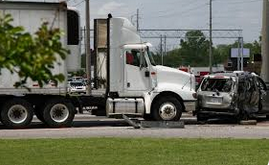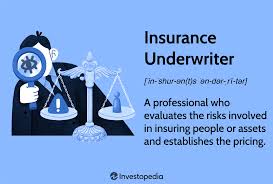Unveiling the Legal Challenges Faced by Attorneys in 18-Wheeler Accidents
If you’ve ever been involved in a road accident with an 18-wheeler, you know just how devastating the consequences can be. From severe injuries to costly property damage, these accidents can change lives in an instant. But did you know that attorneys who work on these cases face unique legal challenges? In this article, we’ll explore the intricacies of 18-wheeler accident cases and the hurdles attorneys must overcome to seek justice for their clients.
From determining liability to navigating complex insurance claims, the legal landscape surrounding 18-wheeler accidents is a maze that demands expertise and experience. Attorneys in this field must be well-versed in federal regulations governing the trucking industry, understand accident investigation techniques, and have the ability to handle multiple parties involved in these complex cases.
Join us as we delve into the world of 18-wheeler accidents, shedding light on the legal challenges faced by attorneys in this area of law. Discover the strategies attorneys employ, the precedent-setting cases that have shaped this practice, and the ways in which they fight for their clients’ rights in the aftermath of a devastating accident.
Understanding the legal framework for 18-wheeler accidents
The legal landscape surrounding 18-wheeler accidents is complex and multifaceted. At the heart of it lies a web of federal regulations governing the trucking industry, which attorneys must navigate with precision. The Federal Motor Carrier Safety Administration (FMCSA) is the primary regulatory body responsible for establishing and enforcing safety standards for commercial vehicles, including 18-wheelers.
These regulations cover a wide range of areas, from driver qualifications and hours of service to vehicle maintenance and inspection requirements. Attorneys must be intimately familiar with these regulations, as any violations can have significant implications in the event of an accident. Additionally, they must understand the interplay between state and federal laws, as the jurisdiction and applicable statutes can vary depending on the location of the accident and the parties involved.
Furthermore, the legal liability in 18-wheeler accidents can be shared among multiple parties, including the truck driver, the trucking company, the manufacturer of the vehicle or its components, and even the shipper or loader of the cargo. Determining the appropriate party or parties to hold responsible is a crucial aspect of these cases, and attorneys must have a deep understanding of the complex web of relationships and responsibilities within the trucking industry.
Common legal challenges faced by attorneys in 18-wheeler accident cases
Attorneys handling 18-wheeler accident cases often face a myriad of legal challenges that require a specialized skill set and extensive experience. One of the primary hurdles is the sheer complexity of these cases, which can involve a multitude of parties, intricate regulations, and a vast array of evidence.
Establishing liability is a particularly daunting task, as attorneys must meticulously investigate the accident, reconstruct the sequence of events, and identify the contributing factors. This process often requires the use of expert witnesses, such as accident reconstruction specialists, who can provide crucial insights and testimony. Navigating the complex web of regulations and industry standards can also be a significant challenge, as attorneys must demonstrate their clients’ compliance or the opposing party’s violations.
Another common challenge is dealing with the deep pockets and formidable legal teams of the trucking companies and their insurers. These entities often have extensive resources at their disposal, making it crucial for attorneys to develop a comprehensive legal strategy and be prepared to engage in protracted litigation. Additionally, the sheer volume of documentation and evidence involved in these cases can be overwhelming, requiring meticulous organization and attention to detail.
Investigating the accident: Gathering evidence and determining liability
Investigating the accident scene and gathering evidence are critical steps in establishing liability in 18-wheeler accident cases. Attorneys must act quickly to secure and preserve crucial evidence, which can include physical evidence from the accident site, electronic data from the truck’s onboard systems, and witness statements.
The process of accident reconstruction is a highly specialized field, and attorneys often rely on the expertise of accident reconstruction specialists to piece together the sequence of events and identify the contributing factors. These experts can analyze skid marks, vehicle damage, and other physical evidence to determine the speed, trajectory, and maneuvers of the vehicles involved. They may also use advanced software and simulation tools to create detailed reconstructions of the accident.
Determining liability in 18-wheeler accidents can be particularly challenging, as multiple parties may share responsibility. Attorneys must carefully examine the actions and potential negligence of the truck driver, the trucking company, the vehicle manufacturer, the cargo loader, and any other relevant parties. This process often involves a deep dive into the company’s safety records, driver training protocols, and maintenance practices, as well as an analysis of the truck’s mechanical condition and the cargo loading procedures.
Dealing with insurance companies in 18-wheeler accident cases
Insurance companies play a crucial role in 18-wheeler accident cases, and attorneys must navigate their complex web of policies and procedures with skill and tenacity. Trucking companies typically carry substantial liability insurance coverage, which can range from $1 million to $5 million or more, depending on the size and scope of their operations.
However, insurance companies are often reluctant to pay out the full value of these claims, and they employ a range of tactics to minimize their financial exposure. Attorneys must be well-versed in the insurance industry’s practices and be prepared to challenge their denials, delays, and low-ball settlement offers. This may involve conducting thorough investigations, gathering extensive documentation, and engaging in complex negotiations to ensure that their clients receive the compensation they deserve.
Additionally, attorneys must be familiar with the various types of insurance coverage that may be applicable in 18-wheeler accident cases, such as liability, cargo, and uninsured/underinsured motorist coverage. They must also understand the intricacies of subrogation, which allows insurance companies to recover their payouts from the responsible parties, and how to navigate these complex legal processes.
The role of expert witnesses in 18-wheeler accident litigation
Expert witnesses play a crucial role in 18-wheeler accident litigation, providing crucial insights and testimony that can make or break a case. These experts come from a variety of backgrounds, including accident reconstruction, engineering, trucking industry regulations, and medical fields, and they are tasked with helping the court understand the technical and specialized aspects of the accident.
Accident reconstruction experts, for example, can analyze the physical evidence from the accident scene, such as skid marks, vehicle damage, and the final resting positions of the vehicles, to reconstruct the sequence of events and determine the contributing factors. Their testimony can be instrumental in establishing liability, as they can provide detailed explanations of how the accident occurred and who was at fault.
Medical experts, on the other hand, can provide valuable insights into the nature and extent of the injuries sustained by the victims of an 18-wheeler accident. They can testify about the long-term prognosis, the need for ongoing medical treatment, and the impact of the injuries on the victim’s quality of life. This information is crucial in determining the appropriate level of compensation for the victims.
Negotiating settlements vs. going to trial in 18-wheeler accident cases
In the aftermath of an 18-wheeler accident, attorneys must carefully weigh the pros and cons of negotiating a settlement versus going to trial. While settlement negotiations can offer a quicker resolution and potentially higher net recovery for the client, they also come with their own set of challenges and risks.
Negotiating with the insurance companies and the trucking companies can be a delicate and complex process, as these entities often have deep pockets and experienced legal teams. Attorneys must be skilled negotiators, able to anticipate the opposing party’s tactics and strategies, and willing to stand firm in their demands for fair and just compensation. They must also be mindful of the potential pitfalls of settlement negotiations, such as the risk of accepting an offer that does not fully account for the client’s long-term needs.
On the other hand, going to trial in an 18-wheeler accident case can be a risky but potentially rewarding path. Attorneys must be prepared to present a compelling case, backed by extensive evidence and expert testimony, and to navigate the complex legal landscape of the courtroom. While the potential for a larger award is greater, the time and resources required to take a case to trial can be significant, and the outcome is never guaranteed.
The importance of experienced attorneys in handling 18-wheeler accident cases
Navigating the complex legal landscape of 18-wheeler accident cases requires the expertise and experience of seasoned attorneys. These cases are not for the faint of heart, as they often involve a multitude of parties, intricate regulations, and vast amounts of evidence.
Attorneys who specialize in 18-wheeler accident litigation must possess a deep understanding of the trucking industry, the applicable federal and state laws, and the strategies employed by insurance companies and opposing legal teams. They must be skilled investigators, adept at gathering and preserving crucial evidence, and capable of working with a wide range of expert witnesses to build a strong case.
Moreover, these attorneys must be tenacious negotiators, willing to stand firm in their demands for fair and just compensation for their clients. They must also be prepared to take these cases to trial, if necessary, and to navigate the complex legal proceedings with confidence and expertise.
Recent developments and trends in 18-wheeler accident litigation
The landscape of 18-wheeler accident litigation is constantly evolving, with new developments and trends emerging that can have significant implications for attorneys and their clients. One notable trend is the increasing use of technology in accident reconstruction and investigation.
Advancements in data analysis, accident simulation software, and electronic logging devices have provided attorneys with a wealth of new tools to help establish liability and build stronger cases. For example, the FMCSA’s mandate for electronic logging devices (ELDs) in commercial vehicles has given attorneys access to detailed data on driver hours, vehicle maintenance, and other critical information that can be used to identify potential violations and hold trucking companies accountable.
Another trend is the growing emphasis on safety and accountability within the trucking industry. In recent years, there have been several high-profile cases and regulatory changes that have put a spotlight on the need for more stringent safety standards and better training for truck drivers. This has led to an increased focus on driver qualifications, vehicle maintenance, and cargo loading procedures in 18-wheeler accident litigation.
Conclusion: Seeking justice for victims of 18-wheeler accidents
The legal challenges faced by attorneys in 18-wheeler accident cases are formidable, but the stakes are high for the victims and their families. These accidents can result in catastrophic injuries, long-term medical needs, and devastating financial consequences. It is the responsibility of experienced and dedicated attorneys to navigate the complex legal landscape, hold the responsible parties accountable, and seek justice for those who have been affected by these devastating events.
Through their deep understanding of the trucking industry, their mastery of the applicable laws and regulations, and their unwavering commitment to their clients, these attorneys play a vital role in ensuring that the victims of 18-wheeler accidents receive the compensation and support they need to rebuild their lives. By leveraging the latest technologies, working with a network of expert witnesses, and employing effective negotiation and litigation strategies, they are able to overcome the unique challenges of these cases and achieve positive outcomes for their clients.
As the trucking industry continues to evolve and new developments emerge in 18-wheeler accident litigation, the role of skilled and experienced attorneys will only become more crucial. By staying at the forefront of these changes and continuously honing their expertise, these legal professionals can help to ensure that justice is served and that the victims of these devastating accidents are not left to bear the burden alone.




